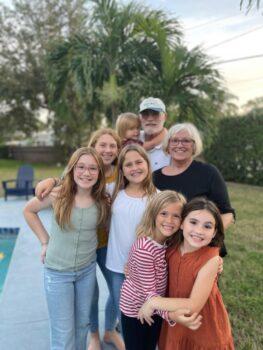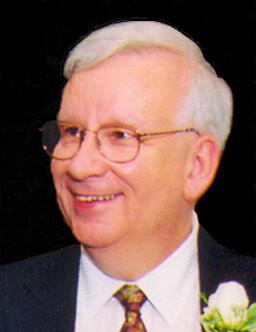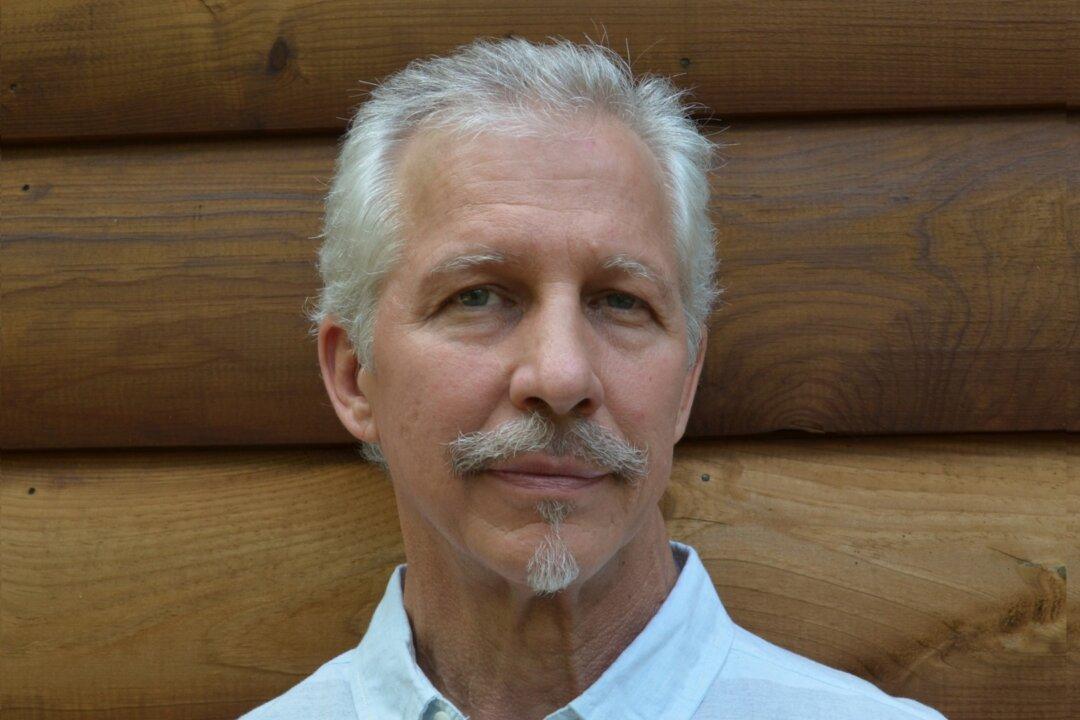Dennis Hansinger has always felt the presence of God and sought to know more. A typical answer he’s gotten is to go to church, and believe in “an old man with a beard up in the sky,” he said. “And that didn’t rationalize with me over the years.”
“I always felt there was a soul, and I didn’t quite understand why I felt that way. Over the years, I’ve felt there is something there, something beyond where we are,” he said.
“The things that the author talks about are so real to me,” said Mr. Hansinger, a retired insurance agent.
After reading the article, Mr. Hansinger ordered a copy of another work Mr. Li authored, “Zhuan Falun,” the main text of Falun Gong. He spent a week reading it thoroughly and was halfway through when he accepted an interview with The Epoch Times.
“The article itself pointed me in a direction that I felt like was a very familiar road,” he said. “I felt a lot of comfort with the direction that the article was leading me, something I can’t totally explain.”
“The concepts in that book resonated with me. I believe there is so much more to our universe than what we know, which seems to be a really little amount compared to what is possibly out there. And I got that from reading the article also,” he said.
Mr. Hansinger was strongly moved by “the idea that we should pursue truth [and] compassion, because it’s not only good for others, it’s good for us. I’ve always thought I was treating people properly, I think I was, but I didn’t really understand how I felt it,” he said. “I think the book is bringing me around to different viewpoints—not different, maybe, but more clarifying.”
“The author is a teacher, and I need a teacher to get to where I want to be. I don’t think we can do it on our own,” he said.
“It’s very, very clear. It’s deep, some of it gets pretty deep, and has to be understood,” he said. “I’m learning and trying to put it all into a perspective that I can live with and make sense of.”
Mr. Hansinger said he was raised Catholic, but “that wasn’t for me.” He wanted to live righteously, and with a connection to God, and tried other things as well. For a few years, he said, he was Presbyterian, and served as an elder, but “that wasn’t for us either. It felt like it was leading me when I don’t need to be led.”
But he felt Mr. Li’s writings were spiritually essential, and felt the need to share his discovery with others who could benefit the way he had.
“After I’ve read the book, I’m definitely going to pass it on, and request that it be passed on from there. And I won’t give it to somebody that won’t give me assurance of that, I'll be looking for someone who will be receptive to that,” he said. “I hope they can get to the point where they understand humanity, how long it’s been here, what is the point behind this? I’m not sure I know, but I think it’s worth seeking.”
“I want to live this life as the best person I can, help who I can, and trust that the spiritual world is there,” he said. “That is something I haven’t experienced and nobody will come back and tell me about, I just feel it’s absolutely there, as much as I can in this human body.”
He shared the article with his son, who at first asked if this was related to a cult in China. Then Mr. Hansinger sent a picture of the book to his son, who replied to him, “What a magnificent place to start.”
What Is Falun Gong?
Falun Gong, also called Falun Dafa, is a spiritual discipline that combines meditation and gentle exercises with a moral philosophy centered on the tenets of truthfulness, compassion, and tolerance.It was introduced to the public in China in the 1990s, and within a decade an estimated 100 million people were practicing Falun Gong. In 1999, the Chinese Communist Party initiated a large-scale persecution campaign against Falun Gong practitioners, including hate propaganda and censorship that extends to the West. Today, people in over 100 countries around the world are practicing Falun Gong.
Prior to the communist takeover in 1949, Chinese civilization was deeply traditional and spiritual. The concept of “spiritual cultivation” or “cultivating character” is inherent to traditional Chinese culture, which has absorbed much from Buddhism, Taoism, and Confucianism.
Mr. Li is a four-time Nobel Peace Prize nominee and was nominated by the European Parliament for the Sakharov Prize for Freedom of Thought. He is also the recipient of Freedom House’s International Religious Freedom Award.
Seeking Virtue
Many readers of the recent article expressed hope. They shared that they felt humankind has an innate wish to be good and return to the Creator. Several of these readers have spent decades seeking answers on how to do this, the purpose of human life, and the truth of the universe. In their searches, these people said they discovered no one religion could not answer all of their questions.But they also shared that, in their years-long quest for wisdom, more often than not the essentials of each religion were the same, and all of those fundamentals could be found in the article.
Mike Sorge, a sculptor, studies spiritual or religious philosophies for an hour every single morning.
“Often I get carried away and it ends up being two or three more hours,” he said. “I search for wisdom from all cultures, ancient through contemporary times, and I have collected tens of thousands of wisdom quotes and I organize them by virtuous themes.”
His search began a dozen years ago, right around the time he made the change from a sales career to working on his art full-time. “I wanted to become a wiser and better person,” he said. His search resulted in a large database of writings, which he felt could be summed up in two words: “virtuous freedom.”

“If you study the spectrum and depth of virtue, you begin with all these marvelous things that are taught in pretty much every great religion, I’m talking about courage, compassion, gratitude, faithfulness, forgiveness, hope, mercy, justice, honor, humility, all of these things,” he said. Virtue is the center of Mr. Sorge’s study, and different cultures and religions teach different ways to live and express these virtues.
“In my soul, I wanted to learn, I wanted to better understand why we’re having all these problems within life,” he said.
‘Why Are We Here?’
Jim Lynch, retired from the Army, has spent years seeking spiritual answers as well. Now 74, Mr. Lynch says he spent his years in the Army collecting books he couldn’t always find time to read, and now in his active retirement, he is steadily working through over 1,000 books.“From a very young age, I always wanted to know why I was born—what’s the purpose? Why are we here? Where are we going?” he said. “And I realized eventually that a lot of people didn’t want to talk about it or couldn’t talk about it ... I still am very interested. And interestingly enough, when I was young, I always knew that later in my life I would have time to better contemplate these themes ... life and the purpose of life.”

Mr. Lynch said he read the article multiple times, and as he reread it he came to clearer understandings.
“I think [the article is] making [readers] think about why we’re here and where we’re going, it’s very important,” he said. “I think it’s convincing others that karma, or doing good for others is eternally benefitting themselves.”
“I think the article helps communicate that question. This is just my view, but what could be more important than why we’re born, why we’re here, and where we’re going?” he said. “What’s the best way to live? And [the article] kind of addresses that: be loving, help people.”
Randy Brinson, a life coach, has spent a career helping people try to become the best versions of themselves. He, like the other readers, said he thought people innately want to be good. But the problem today is that young people are no longer being taught this essential wisdom, he added.
The world has veered far off track, and positive influences need to reach young people if the world is to come back on track again, he said. So when he received the article, Mr. Brinson said he thought “this is great!” because it contained just what young people would need to know.
“I said, this is good stuff, and I think probably every junior high student should read it, and then read it again,” he said. “It talked about the type of thinking, or type of priorities that people who can maintain, identify, and hold on to those beliefs can indeed have a good life, happiness, freedom ... and make important contributions to society and people around them.”
“I think that he [Mr. Li] can make a difference,” Mr. Brinson said.

Mary Novoselski, a retired government employee, said that at one point in her life, she lost faith, and then came back to it. This is how she knows that faith “centers you. You can’t be human without it.”
Decades ago, while navigating a rough patch in her life, Ms. Novoselski started studying religions, mostly Biblical, and solidified her faith in a divine Creator and her understanding that there is more than this single earthly life. In her six years of retirement, she says she has been doing a lot of reading and listening to podcasts.
After Ms. Novoselski read the article, it was like a lightbulb turned on. She thought “this is basically going on in the world. This fits perfectly now.”
“It explains basically how everyone got where they got. This is why we’re in the position we’re in now,” she said. “He explains everything, why things are happening, and then at the very end it gives you the glimmer of hope, there is something better on the other side. This just isn’t it.”
“There’s going to be a lot of upheaval, there’s going to be problems. There’s going to be trials, there’s going to be tribulations. But there’s always something good. Always good trumps evil. It just might take time. I might not see it in my lifetime. But I just pray for the kids for the future. You can’t just look at your immediate self here,” she said. “You’ve got to look at what’s happening a hundred years down the road from now. The destruction and everything that’s been going on, it’s a cumulative thing. It didn’t just happen overnight.”
“I really feel the article itself is very uplifting,” Ms. Novoselski said.





